How these business women launched and built their empires
From running a high-end fashion boutique to managing a $2 billion project, Bundaberg has no shortage of successful and inspirational business women.
Community News
Don't miss out on the headlines from Community News. Followed categories will be added to My News.
The former chief operating officer of Facebook, Sheryl Sandberg, said “I want every girl who’s been told she is bossy to be told again she has strong leadership skills”.
The former chief operating officer of Facebook, Sheryl Sandberg, said “I want every girl who’s been told she is bossy to be told again she has strong leadership skills”.
Entrepreneurs turn ideas into reality, often risking their entire livelihood to create value and opportunities to the benefit of the broader community.
For female entrepreneurs, that risk is made even greater due to the invisible barriers often encountered by strong women as they make their way in the world, even now in 2023.
The people of Bundaberg have many reasons to be proud, and right at the top of that list should be the many intelligent, determined women who have built their empires and made their mark on the community.
Meet some of Bundaberg’s most impressive and inspiring business women as they describe their journey to the top of their chosen field.
Susie Faulkner – ByTheRules Conveyancing
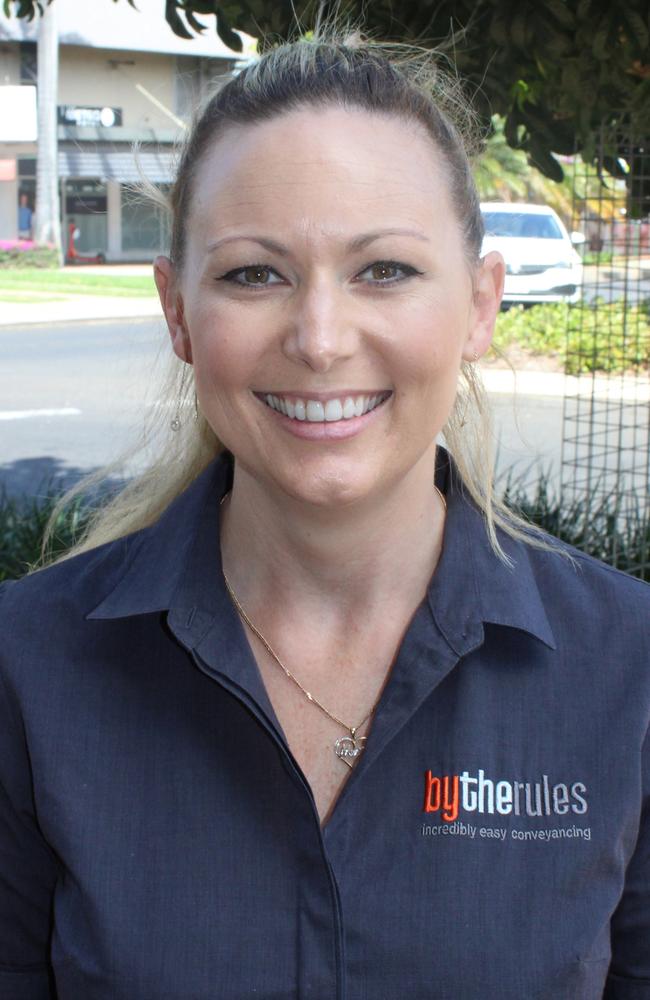
From the depths of a mental breakdown, Susie Faulkner has risen to become one of Bundaberg’s most celebrated businesswomen.
After studying law at QUT and University of Southern Queensland, Ms Faulkner, 38, worked as a paralegal for various Brisbane law firms before taking up a role with Queensland Police Service.
It was while working as an administration officer in the QPS Right to Information office, handling detailed records of the worst crimes imaginable on a daily basis, that Ms Faulkner suffered a mental breakdown and was diagnosed with PTSD.
“Just seeing and reading such graphic material day in and day out, in the end it just wore me down,” she said.
“I can only describe it as like a switch gets flipped in your brain, and you just you can’t turn it off and you can’t ever go back to the person that you were before.”
Ms Faulkner and her husband made the life-changing decision to travel Australia, hitting the road with no firm plan or end in sight.
Throughout their travels Ms Faulkner’s husband picked up work managing resorts and hotels, which allowed them to live and work in beautiful locations on the south coast of NSW, Tasmania and even a brief stint in Vanuatu.
The travel experiences over three years “was some of the best therapy” for Ms Faulkner and the couple returned to Brisbane in 2017 where she saw an advertisement for a conveyancing franchisor named ByTheRules.
Intrigued by the work-from-home model, innovative at the time, Ms Faulkner made some inquiries and eventually bought one territory, soon followed by two more covering most of northern Brisbane.
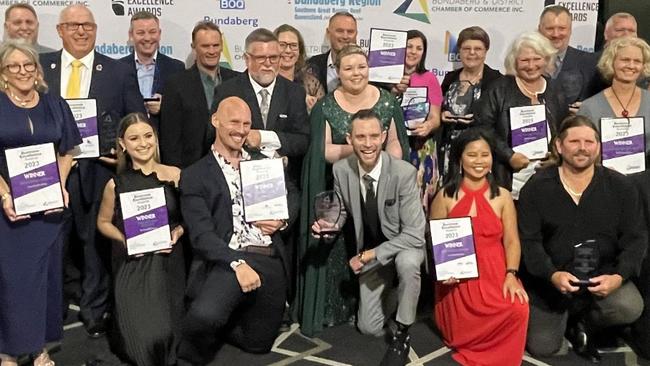
“I said to my husband, ‘I really think there’s potential here’, and we can grow a great little business and still be safe working from home,” Ms Faulkner said.
“He said ‘I just don’t know about that’, and then I said ‘well, it’s too late, I paid a deposit on it we’re getting another territory’.
“So that kind of freaked him out a little bit, but then he was like, ‘no, if you believe in it, I believe in it’.
“I’m very lucky to have had his support in that regard, that’s made a big difference.”
With her husband having family in Bundaberg, the couple moved north in 2022 following the birth of their daughter, adding the local franchise to their burgeoning portfolio in January 2023.
Specialising in residential conveyancing, Ms Faulkner said working from home leads to improved customer service that sets her apart from the competition.
“If you’ve got a question, I’m your conveyancer from start to finish,” she said.
“There’s no offshore, there’s no outsourcing, if you need to see me face-to-face then let’s meet at the local coffee shop.
“It’s nice to be able to offer that sort of service, I don’t think a lot of law firms would do that.”
After relishing her role as a mentor to two conveyancers she has taken on to manage the Brisbane territories, Ms Faulkner is mulling over plans to offer coaching for women considering setting up businesses of their own.
“I’d love to use all of my skills to help other women in business and give back to other mums or women that have been through something similar to me or that are looking at going out on their own,” she said.
Janelle Gerry – Macadamias Australia
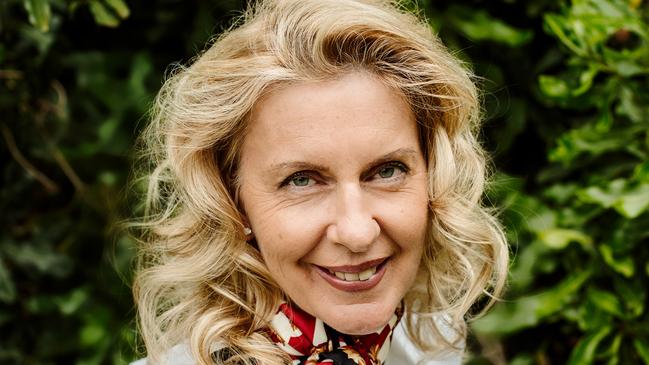
After taking over as managing director of the Steinhardt Group which encompasses Macadamias Australia and Farmfresh Fine Foods, a portfolio which includes the popular macadamia home orchard, and “tree to table” tourist experience and cafe, value added macadamia retail business and vegetable processing, all founded by her parents in 1958, Janelle Gerry said she feels anything but overwhelmed by the responsibility of running the family business.
Rather, Ms Gerry (nee Steinhardt) said she, together with her husband Andrew and adult children Luke and Rachel, was extremely passionate about maintaining and extending the Steinhardt legacy, enabled by the “explorer spirit” instilled in her family by her parents Ron and Marion.
“We’re just so passionate about what we do, I love it so much,” Ms Gerry said.
“We’ve always had a real sense of innovation, but our parents definitely instilled in us that explorer spirit, which they had to have when they first started the business.
“We very much wanted to make sure that their legacy and the values that we were founded on were continued on and weren’t diluted over the years.”
After various iterations including growing pumpkin, tomato and zucchini crops, the family made the shift to macadamias in 2004 with the establishment of the Macadamias Australia brand.
True to her parents’ spirit of innovation, Ms Gerry has presided over a transformation of the business, including opening a $25 million nut cracking factory and a value-added facility including a cafe, tourist experience and store selling Macadamias Australia branded retail products.
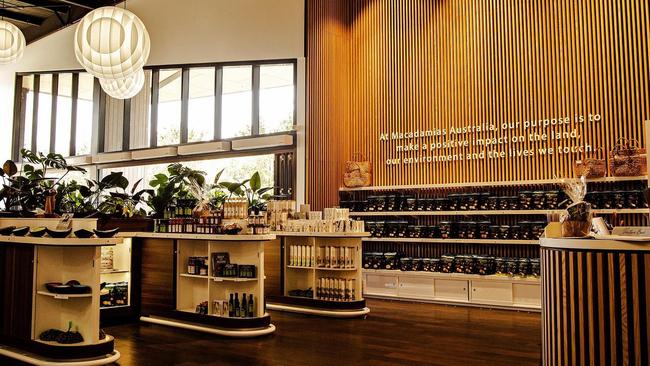
A recent divestment of assets is fuelling a bold strategy including a major rebranding planned for early 2024 ahead of a push to grow sales of the famous sweet and savoury coated macadamia retail products in international markets including China, Korea and Vietnam as well as expansion of the vegetable processing arm, Farmfresh Fine Foods.
Despite the exciting time ahead, Ms Gerry said being a leader and sometimes mentor for the staff of more than 100 was the most satisfying part of her role.
“That’s the part we love the most, is our people … we really, really value the contribution they make,” she said.
“We are so proud of how far they’ve come and the part that we’ve played in developing them, to make them the best version of themselves.”
Counter to the view many might hold of the agricultural industry being male-dominated, Ms Gerry said she had never felt any barriers due to her gender, thanks in large part to her parents’ support and encouragement.
“I just always believed that I could contribute equally, which I guess is something that Mum and Dad may have always given me – a sense of self belief,” she said.
Ms Gerry said women had a significant role to play in deploying “soft skills” to enhance the business culture.
“I think women can play a huge part, but they definitely have to have a sense of self and be confident in the contribution that they can make,” she said.
“I think any woman in business brings that emotional intelligence to the table.
“It is the sort of softer skills and that care of people and empathy, and maybe just seeing things from a different perspective that I think is so important in business.”
Carly Clark – Splitters Farm
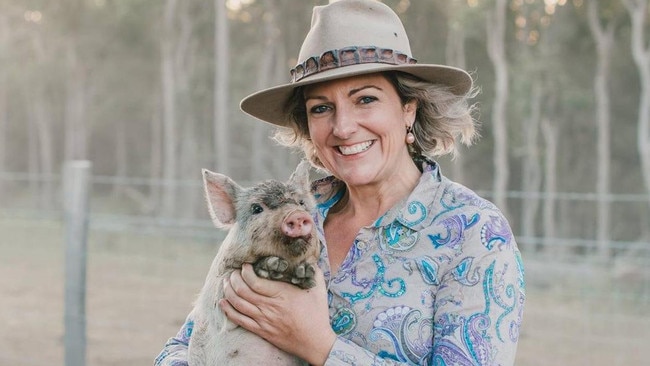
There is an intriguing and inspiring story behind Carly Clark’s journey from being events manager for the Wiggles to establishing Splitter’s Farm, one of Bundaberg’s leading Agtourism ventures.
In many ways, Ms Clark has come full circle from her first job picking up eggs in a battery hen farm, a weekend job on her family’s rural property in South-West Sydney while she worked as a babysitter and in a Video Ezy during the week – all while attending school.
“It was an extremely difficult job, it was an extremely disgusting job,” she said.
“But yes, I guess it taught me hard work and ambition.”
Being creatively minded, Ms Clark started her own events and marketing business in WA before joining the Wiggles, a job she describes as one of the highlights of her career.
“When you look at the Wiggles, everyone sees them as one of Australia’s largest exports, but really the values are very similar to any other small family business,” she said.
“Once you go into a situation like that, you do realise the benefits of having people around you who are trustworthy and loyal.”
It was while working in radio, and later as head of marketing for Auswide Bank, that Carly felt most challenged due to her gender by an “egotistical men’s club”, an experience that taught her some valuable strategies in working with others.
“I think it really does come down to the type of person that you‘re having challenges with,” she said.
“When I’ve had challenges selling an idea, you go back to the drawing board and … involve the people who are at that decision making level to kind of work through that process. And then they understand it.”
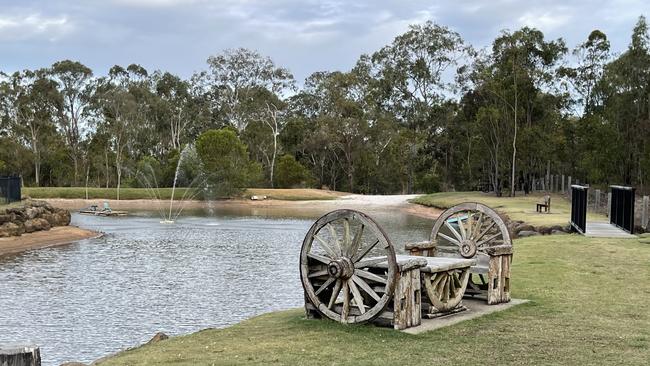
Looking for a change after years of living and working in Sydney – “I just kind of got over the pretentiousness that can come with the big city living” – Ms Clark and her husband, Ashley, decided to relocate to Bundaberg, Ashley’s home town.
In 2017 they bought a 160 acre (65ha) property in Sharon that “didn’t have a lot going for it”, and after modest beginnings as a sanctuary for rescued farm animals the Clarks have grown Splitters Farm into a popular eco-tourism destination including a farm stay experience and function facilities, employing 10 full-time and casual staff.
While being her own boss is a welcome change from the “egotistical men’s club” of her corporate career, Ms Clark said she had not escaped the challenges of being a woman striving for success.
She said the well-documented challenges in obtaining council approval for an expansion to Splitters Farm, including the addition of 39 powered camp sites, were due at least in part to some “bruised egos”.
“There’s some quite senior project officers at council whose egos I have bruised, and I am a strong woman,” she said.
“I’ve probably bruised a few male egos, probably a few female egos as well.”
While the council roadblocks have delayed the expansion, Ms Clark is confident that with the strong community support behind the venture she’ll realise the vision that, for now, is a “long term goal”.
But returning to the question that is undoubtedly on many readers’ minds – who is Ms Clark’s favourite Wiggle?
“I don’t know if I’m allowed to say who my favourite is,” said Ms Clark, laughing.
“Let’s just say Dorothy.”
Jasmine Williams – Connections Play Therapy and Consultancy
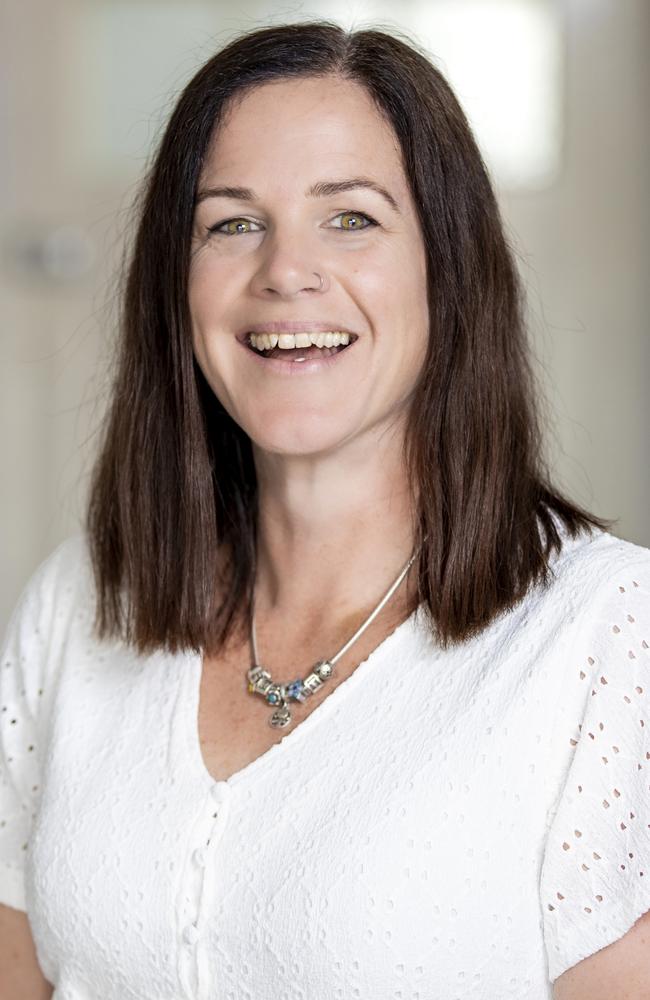
After a career in early childhood teaching spanning 20 years, Jasmine Williams started her own business providing play therapy to children with complex behaviours and traumatic backgrounds.
Through her teaching career, Ms Williams discovered her passion in working with children with complex needs, including children with diagnosed conditions such as autism and ADHD, psychological needs such as family separation and anxiety, and traumatic backgrounds.
Recognising the growing challenges of working with children with complex needs in the classroom, Ms Williams wanted to facilitate support for children in one-on-one sessions.
“In a teaching space it can be very, very hard, and in our teaching spaces at the moment the teachers are getting more and more children with those complex behaviours, and it’s become even harder again to give that individual support,” she said.
In June 2001 Ms Williams took the plunge and opened Connections Play Therapy and Consultancy, a child-centred service providing play therapy to children with additional needs aged 2-12 years.
In the child-centred approach taken by the specialised therapists at Connections Play Therapy, children express their worries, feelings and issues through the medium of play, revealing and healing the issues with which they are struggling in their young lives.
Testament to the success of this approach, after expecting it to take some time to build up to a full-time workload Ms Williams said the business “just took off in popularity” within the first three months.
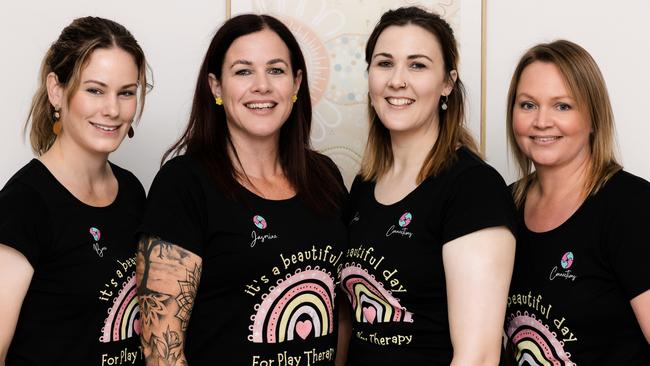
The therapy space now has around 100 children attending weekly or fortnightly sessions delivered by four therapists including Ms Williams.
Ms Williams puts the success of the venture down to long waitlists for support services including paediatricians, therapists and NDIS services, as well as recommendations from satisfied clients.
In addition to running the therapy space, Ms Williams is a consultant facilitating the implementation of play therapeutic approaches at early childhood services, kindergartens and schools around Qld.
While the demand could certainly support an expansion, Ms Williams said does not have any plans to open up any additional facilities.
“We have no more space to grow in this building, and I didn’t come into business to manage staff,” she said.
“So the more staff I get I would probably have to scale back my time with the children and my clients, and I find that really valuable.”
True to her passions, Ms Williams said seeing the children in her care progress through the four stages of play therapy is still the most rewarding part of her role.
“Sometimes it‘s a bit of an out of body experience, like ‘how did I get here?’,” she said
“But it is great, and I’m very, very lucky with my staff.
“Just seeing the children go through to the final stage in their play therapy journey is what‘s really, really rewarding.”
Kira-lee Honor – The Place Hairdressing
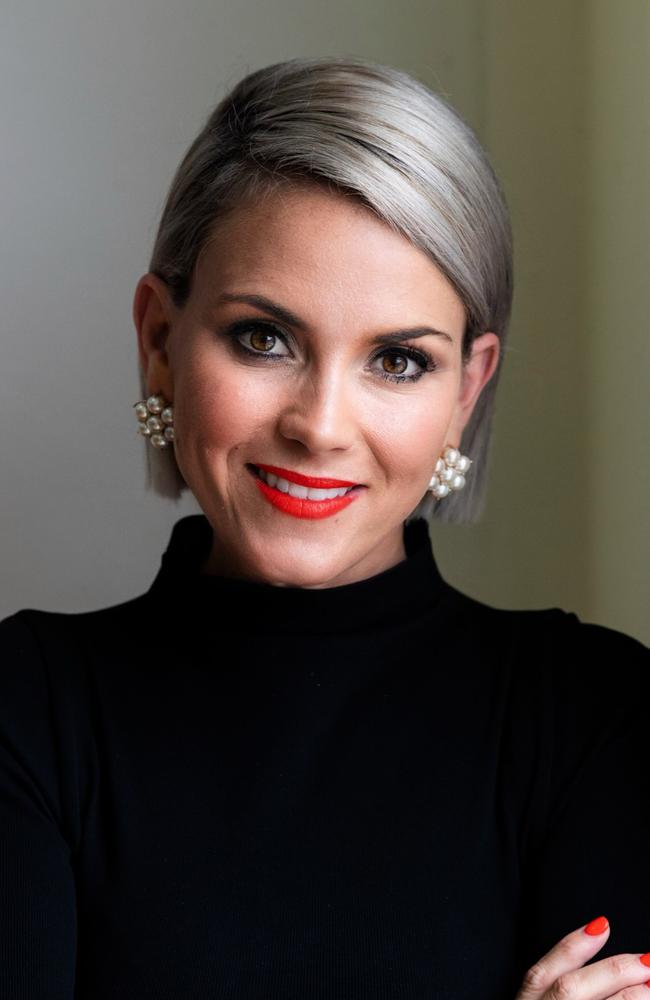
While growing up Kira-lee Honor’s mother often told her “the harder you work, the luckier you are”.
Taking that advice to heart, Ms Honor opened The Place Hairdressing, Bundaberg’s first boutique hairdresser, straight out of high school 18 years ago.
Since then, she has grown the salon’s loyal customer base steadily every year, now employing “15 strong willed women,” as she describes her team of talented stylists.
Named the state salon business of the year at the Australian Hair Industry awards for three consecutive years, Ms Honor has well and truly realised her dream of creating a world-class boutique hair salon in the heart of Bundaberg.
As befits the owner of a business that won the award for Human Resources Excellence at the 2023 Bundaberg Business Excellence Awards, Ms Honor puts her success down to caring for her staff.
With nine of her staff working mothers, she ensures the rostering is sufficiently flexible to ensure there are no conflicts with important events on the school calendar.
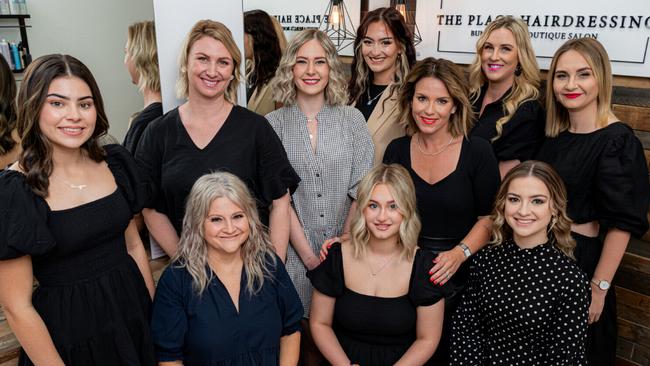
“You’re only as good as the team around you,” she said.
“And so I believe in looking after and empowering the women that I have around me to know that they can achieve great things too.”
A mentor to her staff, Ms Honor often encourages her team to stay true to themselves in the face of any resistance they may encounter as strong women.
“I think being a strong woman has some pros and cons, people are more stand-offish when you are a strong woman,” she said.
“But I think it’s really important to stay true to yourself – I have strong beliefs and I follow through with what I believe in.
“One thing I always say to my girls is to stay true to yourself and be the person that you want to be.
“I think that just makes you a better female, mother, partner and hairdresser.”
As a regional business, Ms Honor feels it is important to give back to the community, something to which she says women are particularly suited.
“I feel like as a woman, and especially as a mother, you’re more compassionate,” she said.
“So you find things to give back to a lot easier.”
Melanice Jacobsen – Cha Cha Chocolate
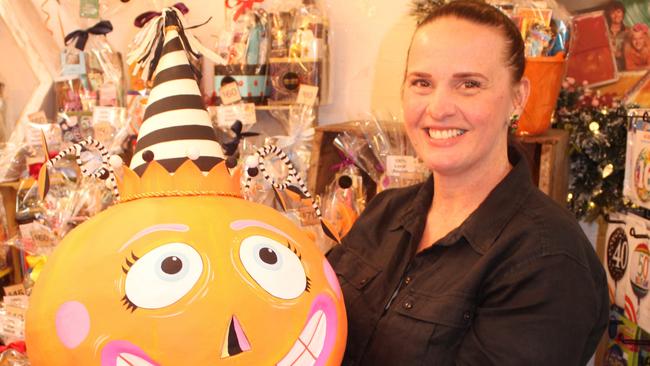
As a second generation chocolatier, Melanice Jacobsen always wanted to continue in her father’s footsteps and open a chocolate shop of her own.
After experimenting with pop-up shop around six years ago, Ms Jacobsen realised she had found her passion and opened a permanent store, Cha Cha Chocolate.
A turning point came during the height of the Covid pandemic in 2001, when she was forced to close the store to foot traffic just before Easter with around $200,000 Easter eggs in stock.
When her father warned her that she could lose her business if the Easter chocolates were to spoil, Ms Jacobsen took quick action and made her entire stock available for online order through the store’s website, which she previously hadn’t used extensively.
Offering free delivery, business boomed to the point that Cha Cha Chocolate was servicing up to 100 orders per day.
“We sent Easter eggs all over the country, it wasn’t about profit then it was just about turnover,” Ms Jacobsen said.
“And then we just got such a name for ourselves in Bundy.”
When the pandemic passed, Ms Jacobsen moved the store to its current location on Bourbong St, a larger space allowing her to stock a broader range of chocolates from around the world including some that she said aren’t available anywhere else in Australia.
Sales have returned to pre-Covid patterns of 90% in-store purchases by a loyal band of customers.
“Our biggest customer base is local, I’ve sort of re-educated Bundaberg on where to buy their chocolate,” she said.
“People come to us every week to buy their chocolate for the week, which is huge.”
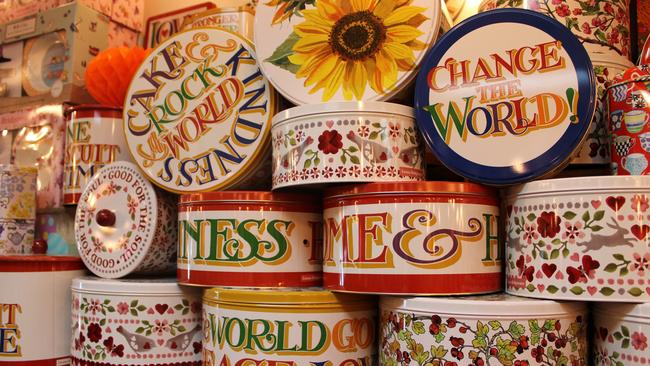
Thanks to her success Ms Jacobsen has grown her staff to seven full-time, casual and seasonal staff who she treats like family.
“We just treat our staff like our family, we look after them and they look after us,” she said.
“Without my staff this shop wouldn’t exist.”
Entering the store from busy Bourbong St, the customer is transported to a chocolate-lover’s paradise, floating on the strains of calming, serene background music past the densely packed rows of colourful and enticing chocolates carefully arranged by Ms Jacobsen and her team.
As much as the unique range of chocolates, Ms Jacobsen said many of her customers return for the delightful experience of shopping in the store which she said is primarily derived from the feminine touch.
“We always make a joke of it, but a lot of people that come in do end up in tears,” she said.
“Because it’s just a soft place to land, the shop’s a nice place and we start a lot of conversations at the till.
“It’s hard to explain, but I do think this shop being run by men, it just wouldn’t be the same.
“I can’t imagine this shop being run by anybody else.”
Jamie Straker – La Sirena
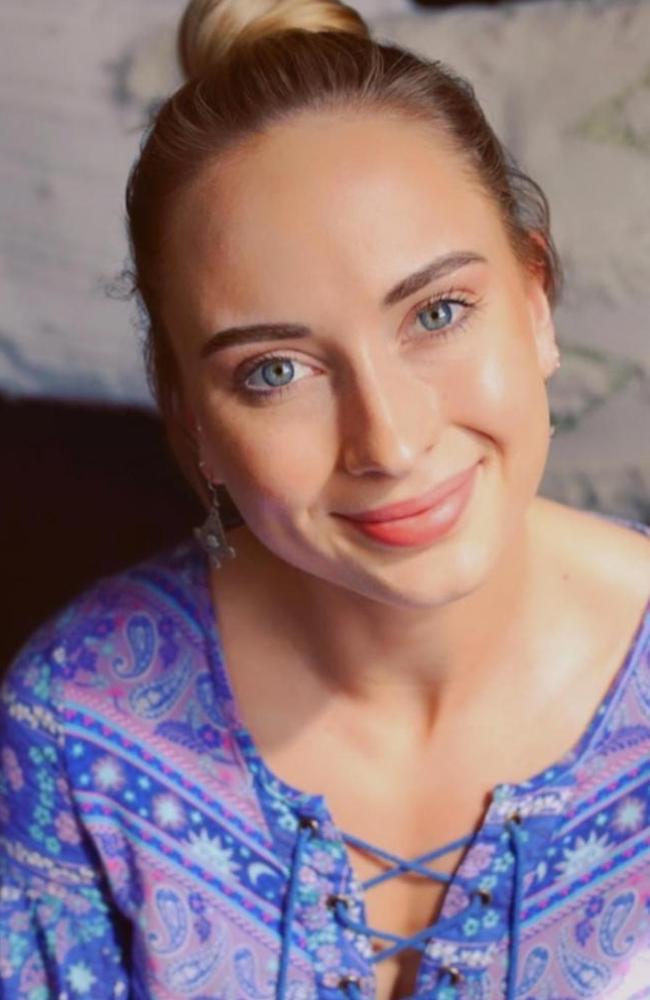
On first impressions, Jamie Straker comes across as an easygoing, friendly young woman, typical of her generation.
But when she (reluctantly) starts speaking about her achievements, it becomes clear she is anything but typical.
Aged just 25, Ms Straker has built up La Sirena, a high-end fashion boutique on Bourbong St, into one of the region’s standout small businesses with more than 8000 Instagram followers and an international client base.
Ms Straker bought the business around three years ago, after learning the small business ropes on an espresso bar and boutique run by family friends that she took over at the age of 20.
Along the way, with an insatiable appetite for learning how to achieve business success and make her mark on the industry, Ms Straker has built up a world-class online store stocking the top fashion labels including Camilla, Alemais, Spell and Kivari.
“We kicked off this year securing all the top labels, that was a really big achievement,” she said.
She loves the fact that customers who buy the high-value pieces sold through La Sirena are investing in clothes that retain their worth throughout their lifetime.
“What I really like is it’s something like you really work towards, you don’t just go out and buy these pieces,” she said.
“These are very, very special pieces that really hold their value so you can put them on a renting site and make big money back from them, and then sell them or resell them later for exactly the same money later. I love that.”
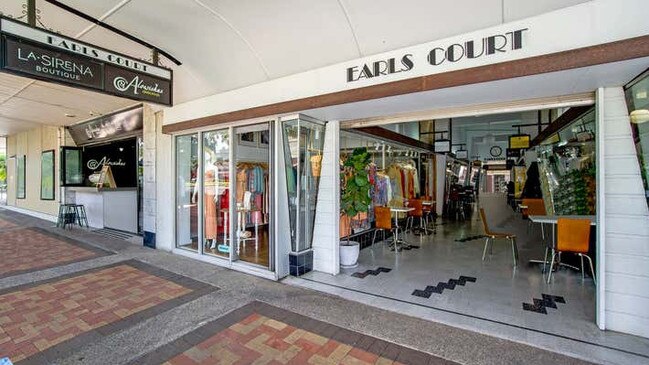
While she feels “very blessed” to have a loyal base of customers who come into the store in person, the majority of her sales are made through the world-class online store to customers throughout Australia and around the world.
“I’m obviously in Bundy, but I don’t feel like I’m in Bundy,” she said.
“I’m always on Zoom calls in Sydney or with our clients all over the world, so it’s more like a base I would say.”
Ms Straker puts her success down to always being “hungry to learn”.
“I always want to be an apprentice, because the second you stop moving is the second you stop growing,” she said.
“Anywhere I go now, I’ll be learning from other people in business. Just being brave enough to ask questions and not pretend to know it all is so important.”
Not content with stocking the most sought-after labels, Ms Straker is now in the process of developing her own label in collaboration with a business colleague with contacts in China.
At the same time, she is working on maintaining some balance in her life which is consumed by her business, something she thinks is typical of female business leaders.
“I live and breathe this,” she said.
“I think it is a big thing with women and business, you have to be 100 per cent devoted to it.
“I think anything that you give everything to, of course it’s going to rise and succeed.
“Where the energy goes, it just grows.”
Tina McPherson – Tinaberries
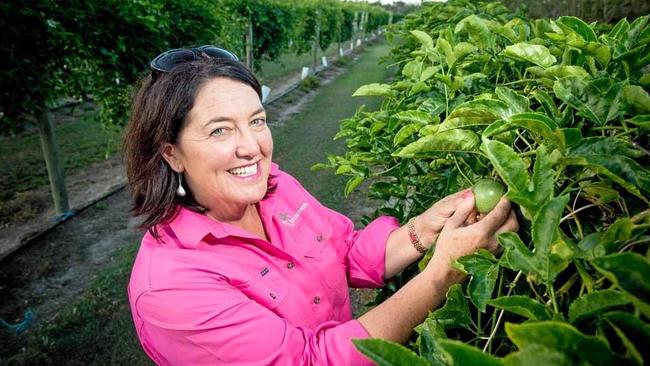
Now in its 20th year, Tina McPherson and her husband, Bruce, have built up Tinaberries to be one of Bundaberg’s highest-profile growing and agtourism operations.
After diversifying from cane to small crops including macadamias and strawberries in 2006, the couple developed the agtourism component including pick your own strawberries and retail sales of ice cream after looking for a way to leverage the waste from the highly perishable strawberries.
Tina and Bruce are a formidable team, with Bruce’s agricultural knowledge complemented well by Tina’s branding skills honed through an earlier career in hotels and marketing.
“While I do the marketing and am the front face of business, Bruce is definitely the one with the agronomy background,” she said.
“And together, we come up with the ideas; some of the some of them are good, and some of them are really bad.
“We filter them out and hopefully it’s the gold that comes to the top.”
The formula is undoubtedly working well, with a steady flow of tourists and locals supporting the operation to the point where it now employs 18 locals.
As with all growers, Tinaberries went through some tough times during Covid with a dearth of seasonal workers, but they survived due to strong support from the community.
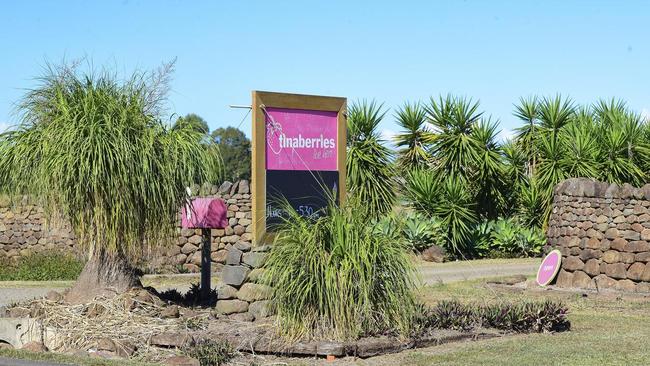
“There was a lot of mothers in the local area who stepped up and said they would work,” Ms McPherson said.
“It was definitely a struggle, don‘t get me wrong, but there were a lot of people in the community who put their hands up.”
Ms McPherson plays an active role in furthering the interests of agriculture in the region as the current director of Bundaberg Fruit and Vegetable Growers, president of Passionfruit Australia and a frequent speaker at food festivals around the country.
She said she has never felt any barriers due to her gender, something she said is characteristic of the agricultural industry.
“I can honestly say at no point have I ever felt like (my gender) has been a barrier to any advancement that I make in my career,” she said.
“I think agriculture has been a really great champion of women‘s representation, because traditionally it really has been businesses run by partnerships where the woman is equally as strong.”
Ms McPherson regularly encourages young women, including her own children as well as the many high school students working for Tinaberries as casuals, to look to her example as proof they can achieve anything they set their minds to.
“I would like to think that the girls see the different things that I do in business and see the opportunity exists for them to do whatever they want,” she said.
“You shouldn’t believe there are any barriers to you doing exactly what you want to do.
“And you should always remember that whatever you choose to do, should align with what you are passionate about.”
Helen Blackburn – South Beach at Elliott Heads
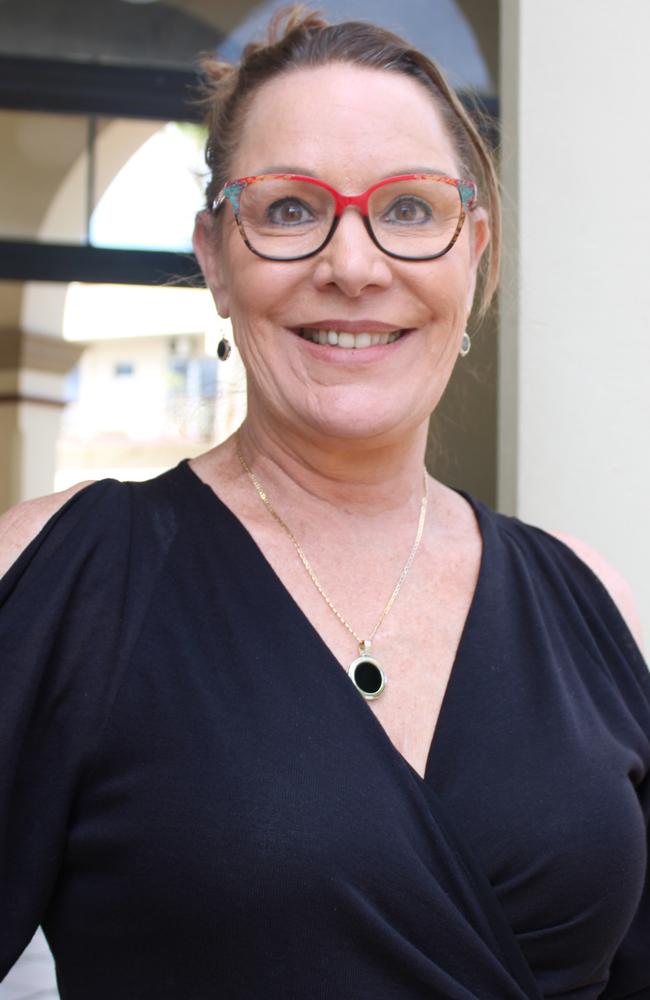
Throughout her long and storeyed career in business and local government, Helen Blackburn has often felt she is “running a different race” to her male counterparts.
After joining the army in the early 1990s in the enlisted ranks, Ms Blackburn’s leadership qualities and intelligence were soon recognised and she was recommended for promotion to an officer, one of only three women out of 300 soldiers chosen.
During the training course she became engaged to an enlisted soldier, which precipitated her “first foray into chauvinism”.
The army leadership told her she could not become an officer while being married to an enlisted soldier, a restriction which did not apply to male officers.
Ms Blackburn “chose love” and married her fiancee, turning down the promotion, with the marriage ending a few years later.
After leaving the military she trained as a dental radiographer, leading to her becoming a practice manager of a Sydney medical and dental clinic.
After moving back to Bundaberg following the birth of her first son, Ms Blackburn took up a job with Telstra, with her success including receiving awards for best salesperson in Australia leading to her being promoted to urban development manager, then the only woman in the country to be filling that role.
In 2015 she decided to start her own laser therapy clinic in Bundaberg, winning numerous accolades at the Bundaberg Business Awards including the People‘s Choice and Best Small Business awards.
It was following the 2013 floods, cognisant of the “unrest in the community” due to some dissatisfaction with council’s response to the disaster, that Ms Blackburn first considered getting involved in local government.
Aged in her mid-40s, at first she thought she was not old enough, but came around to the view that it would be “selfish” not to put herself forward.
“I did a stocktake of my skill set, and I thought I’ve served my country and I have worked in corporate Australia for many, many years,” she said.
“By that stage, I’d opened my own award-winning business, and I was born and bred here and loved the region.
“I thought, it‘s not up to me to make the decision not to be a councillor, it’s up to the people to make that decision.”
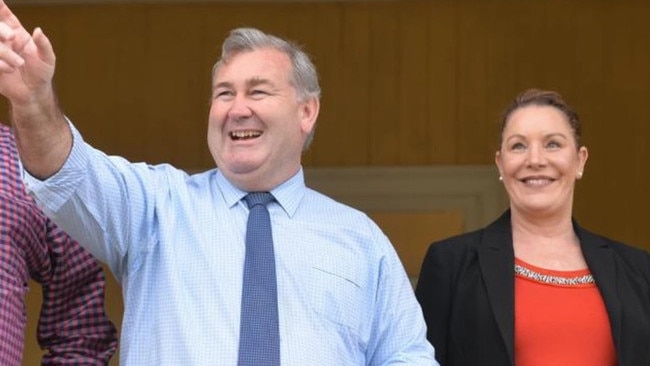
Elected as Division 4 councillor in 2016, Ms Blackburn left local government in 2020 after a mayoral campaign against incumbent Jack Dempsey which, while unsuccessful, garnered her 33 per cent of the votes in a strong showing.
Soon after, she was recruited by local macadamia farmer John Manera as development director for South Beach Elliott Heads, a $2 billion master-planned community including 2000 residential lots, a retirement village, commercial centre and resort.
Ms Blackburn was nominated for two categories in the 2024 Women in Business Awards of Australia, with winners to be announced early in the new year.
When she was filling out the application for the awards Ms Blackburn had cause to reflect on all the work she had done in the community, and how she would always be inclined to give a positive response to every request or opportunity that came her way.
“I thought, wow I’ve done a lot in community and I don’t I didn’t even think about it,” she said.
“I would always say yes, because I always feel that it’s easy to say no, but you just don’t know what opportunities might come along. It’s about taking every opportunity with open arms.”
While she has indeed run her own race, and succeeded, Ms Blackburn said she has developed a collaborative approach when engaging with her business and council counterparts, something for which she feels women are well suited due to a greater propensity for empathy.
“The way that I attack most things is to try to operate from a very collaborative perspective,’ she said.
“It’s not a competition, … it’s about running your own race. I’m only ever competing against myself day in and day out.
“As a woman, and a nurturer, … we tend to have that empathetic part of us that says, ‘let’s try and put ourselves in the other person’s shoes’.
“So we tend to be more empathetic, I feel, than our male counterparts who are more about ‘let’s just get this done’.”





